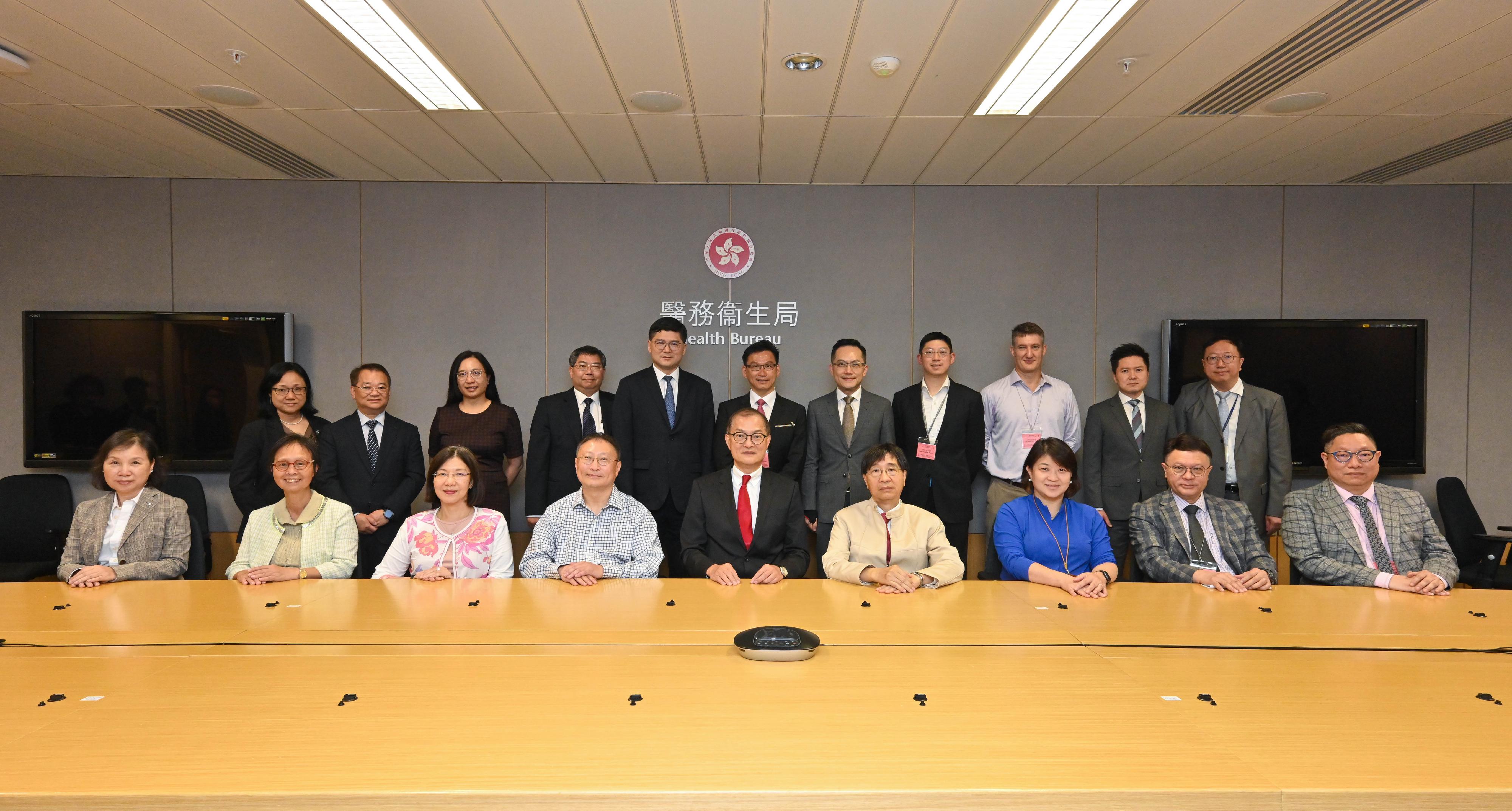The Secretary for Health, Professor Lo Chung-mau, convened the eighth meeting of the High Level Steering Committee on Antimicrobial Resistance (AMR) today (July 10) to review the implementation of the Hong Kong Strategy and Action Plan on Antimicrobial Resistance (2023-2027) and discuss the response strategies with relevant Government departments and organisations.
The Government has all along attached great importance to the necessity of tackling the issue of AMR.The first Action Plan was launched in July 2017 to outline the six key areas of effort and objectives. Under the "One Health" framework, various aspects under the Action Plan were jointly implemented with outcomes achieved in minimising the emergence of resistance and preventing the spread of relevant problems through the cross-sectoral co-ordination and co-operation of relevant government departments and organisations over the past few years.
To sustain the effort in the first Action Plan, the Government launched the second Action Plan in November last year to further map out strategies against the threat of AMR in the next five years. The key areas include strengthening knowledge through surveillance and research; optimising use of antimicrobials in humans and animals; reducing incidence of infection through effective sanitation, hygiene and preventive measures; improving public awareness and understanding of AMR through effective communication, education and training; encouraging relevant researches on AMR, and enhancing partnerships and fostering engagement of relevant stakeholders
At today's meeting, the Steering Committee reviewed the progress of actions taken according to the Action Plan, and evaluated the latest local situation of AMR by analysing the relevant surveillance data. Among which, the data showed that the supply of antimicrobials to community pharmacies continually dropped from 18.5 per cent in 2016 to 6.2 per cent last year. Also, the proportion of the antimicrobials under the World Health Organization (WHO)'s "Access" classification, i.e. those less likely to result in resistance, attained 62.4 per cent of the total antimicrobial supply in Hong Kong last year, higher than the 60 per cent target set by the WHO.
Nevertheless, AMR surveillance revealed an increasing trend of resistance in E. Coli, Klebsiella species and Acinetobacter species to carbapenem antibiotics during the period from 2016 to 2022, while methicillin-resistant Staphylococcus aureus maintains at a high level of above 50 per cent for blood specimens collected among public hospital cases within the same period. These warrant attention, reflecting the need to further strengthen the Antimicrobial Stewardship Programme in the hospitals.
AMR is considered as one of the greatest threats to global health and economies. In order to reduce this threat, close collaboration across the community is essential. The Government calls on different sectors to continue working together to address the problem. Healthcare professionals should follow the guidelines on the use and choice of antimicrobials, while patients should not buy antimicrobials on their own at community pharmacies without prescription. Patients should strictly adhere to doctors’ instructions when taking them.
Chaired by the Secretary for Health, the Steering Committee was set up in May 2016 to encourage collaboration, synergy and cross-fertilisation of all professional sectors under the "One Health" framework in response to problems of AMR jointly. The Committee comprises representatives from relevant Government departments, public and private hospitals, healthcare organisations, academia and relevant professional bodies.
Follow this news feed: East Asia






